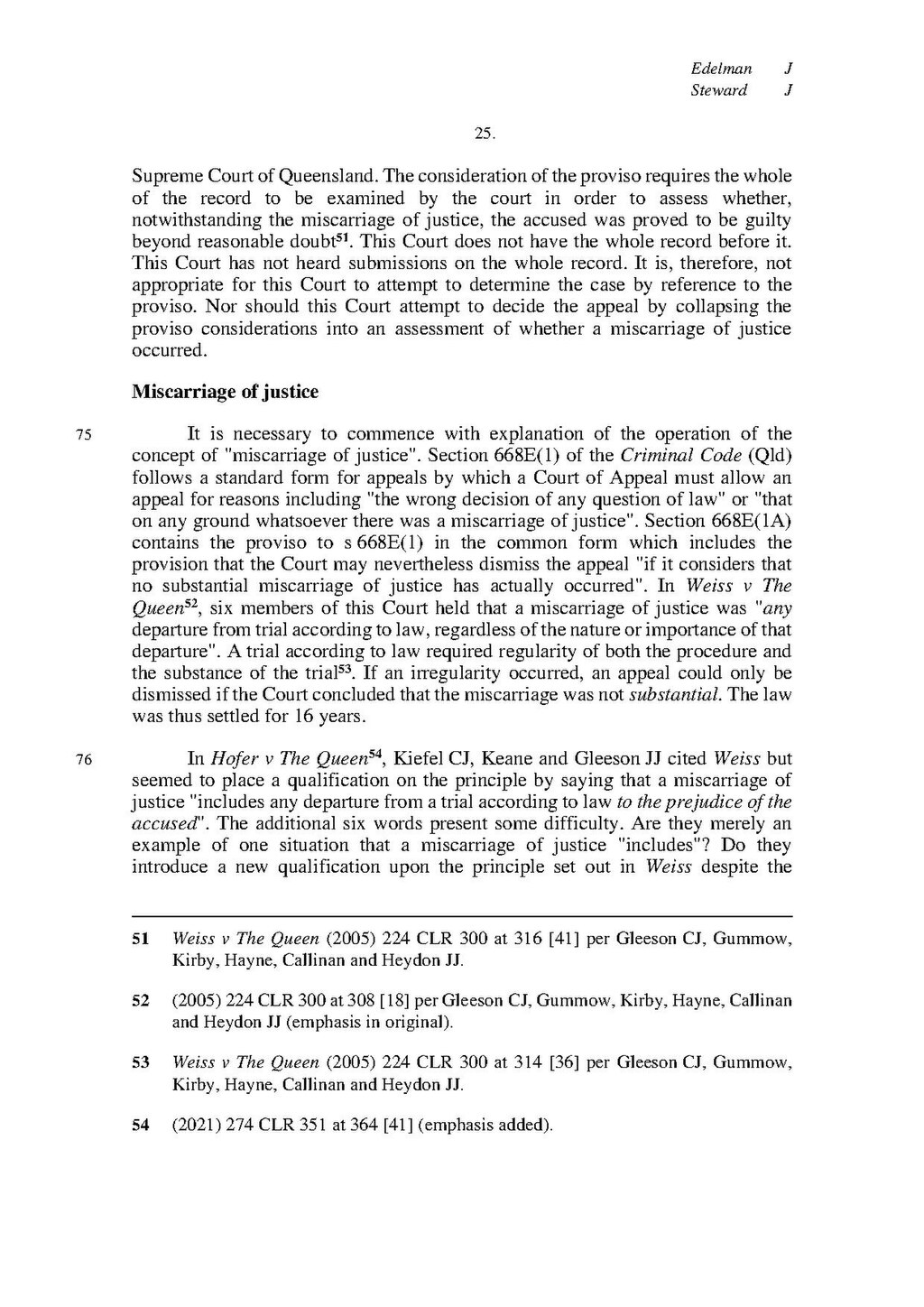Edelman J
Steward J
25.
Supreme Court of Queensland. The consideration of the proviso requires the whole of the record to be examined by the court in order to assess whether, notwithstanding the miscarriage of justice, the accused was proved to be guilty beyond reasonable doubt[1]. This Court does not have the whole record before it. This Court has not heard submissions on the whole record. It is, therefore, not appropriate for this Court to attempt to determine the case by reference to the proviso. Nor should this Court attempt to decide the appeal by collapsing the proviso considerations into an assessment of whether a miscarriage of justice occurred.
Miscarriage of justice
It is necessary to commence with explanation of the operation of the concept of "miscarriage of justice". Section 668E(1) of the Criminal Code (Qld) follows a standard form for appeals by which a Court of Appeal must allow an appeal for reasons including "the wrong decision of any question of law" or "that on any ground whatsoever there was a miscarriage of justice". Section 668E(1A) contains the proviso to s 668E(1) in the common form which includes the provision that the Court may nevertheless dismiss the appeal "if it considers that no substantial miscarriage of justice has actually occurred". In Weiss v The Queen[2], six members of this Court held that a miscarriage of justice was "any departure from trial according to law, regardless of the nature or importance of that departure". A trial according to law required regularity of both the procedure and the substance of the trial[3]. If an irregularity occurred, an appeal could only be dismissed if the Court concluded that the miscarriage was not substantial. The law was thus settled for 16 years.
In Hofer v The Queen[4], Kiefel CJ, Keane and Gleeson JJ cited Weiss but seemed to place a qualification on the principle by saying that a miscarriage of justice "includes any departure from a trial according to law to the prejudice of the accused". The additional six words present some difficulty. Are they merely an example of one situation that a miscarriage of justice "includes"? Do they introduce a new qualification upon the principle set out in Weiss despite the
- ↑ Weiss v The Queen (2005) 224 CLR 300 at 316 [41] per Gleeson CJ, Gummow, Kirby, Hayne, Callinan and Heydon JJ.
- ↑ (2005) 224 CLR 300 at 308 [18] per Gleeson CJ, Gummow, Kirby, Hayne, Callinan and Heydon JJ (emphasis in original).
- ↑ Weiss v The Queen (2005) 224 CLR 300 at 314 [36] per Gleeson CJ, Gummow, Kirby, Hayne, Callinan and Heydon JJ.
- ↑ (2021) 274 CLR 351 at 364 [41] (emphasis added).
